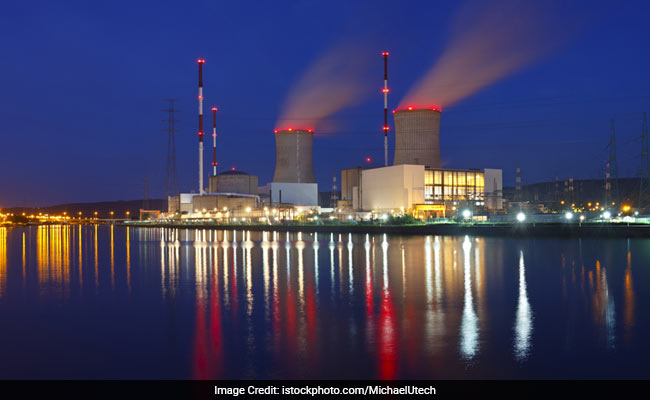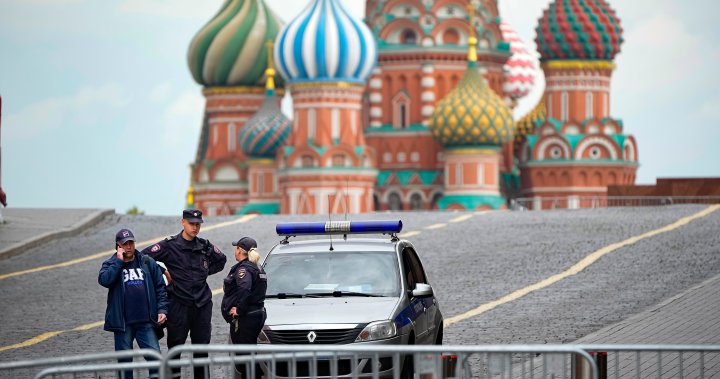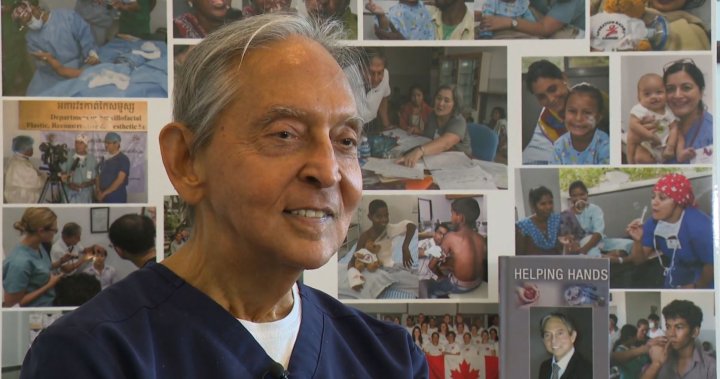[ad_1]

India, Russia in talks to collaborate in research on controlled thermonuclear fusion (Representational)
Thiruvananthapuram:
India and Russia are in discussions to collaborate on a range of activities including research on controlled thermonuclear fusion and joint development of the transit potential of the Northern Sea route, a top official of the state-run atomic energy corporation in Moscow, Rosatom, has said.
AE Likhacheva, CEO of Rosatom said the main topic of discussion with India was on the prospects of further cooperation in the field of nuclear technologies and in non-energy and non-nuclear areas.
Likhacheva, who visited the Kudankulam Nuclear Power Plant (KNPP) in Tamil Nadu last month, said both sides have gained enormous experience in cooperation during the construction of KNPP’s first units.
“Already, our cooperation extends beyond the borders of India. Indian companies are participating in Rosatom’s project to build the first nuclear power plant in Bangladesh – Rooppur NPP,” he told Press Trust of India in an email interview.
Additionally, Rosatom was developing a considerable number of new areas of activity –about 80 of them–and in many of them it was ready to share its developments with friendly countries.
“Thus, we can offer the Indian side our competencies in the construction of low-power nuclear power plants,” he said.
He was of the view that both countries have great potential for cooperation in scientific research, including on the topic of controlled thermonuclear fusion.
Likacheva said Rosatom was also ready to provide Indian scientists, the opportunity to conduct research at the MBIR multi-purpose fast neutron research reactor currently under construction in Russia.
“This will be the most powerful research reactor in the world, it will open up unique opportunities for conducting a wide range of work on medical topics, research in the field of fundamental and applied physics, as well as in the interests of creating new materials,” he said.
Besides that, Russia is also in discussions with India on the joint development of the transit potential of the Northern Sea Route, which is operated by Rosatom.
This will help ensure supplies of Russian oil, coal and liquefied natural gas to India via the said route, with transshipment in Russian Far Eastern ports.
“We are also exploring options for cooperation within the framework of the Euro-Asian Container Transit project. This project involves the organization of a pilot line for international container transit through the Northern Sea Route. As you can see, the range of areas for mutually beneficial cooperation is very wide, and I am confident we will still make a significant contribution to the development of the strategic partnership of our countries,” he said.
Regarding India’s long-term energy strategy and goals, the Rosatom CEO said that the company plans to have a cumulative installed capacity share of non-fossil fuel energy sources of around 50 per cent by 2030 and achieve net-zero emissions by 2050. Nuclear energy would play a significant role in attaining those goals.
He said India already ranks second after China in terms of the number of nuclear power units under construction simultaneously.
The construction of KNPP is a flagship project of Indo-Russian cooperation and it is being built according to a modern generation 3 design with VVER-1000 reactors, he said.
“This is the largest nuclear power plant in India. Operating just one 1,000 MW unit prevents on average more than 3 million tons of CO2 emissions annually.”
“… the operation of the first two units has already prevented emissions of more than 47 million tons of CO2 equivalent. This means that in addition to providing the south of India with the necessary electricity, the nuclear power plant is already helping to improve the environmental situation in the region,” Likhacheva said.
He said Unit 1 and 2 of the NPP were operating stably and in compliance with all safety conditions.
“The construction of the second stage (blocks 3 and 4) and the third stage (blocks 5 and 6) is actively underway. The construction process of the nuclear power plant is in full swing. Let me remind you, the Russian side’s area of responsibility includes design, supply of main and auxiliary equipment, installation supervision and personnel training. We fulfill all our obligations in full,” he said.
Likhacheva also said Rosatom has already delivered the first batches of the new type of fuel assemblies, TVS-2M, with an increased nuclear fuel load, to the power plant in June 2022.
“Operating on longer fuel cycles increases the economic efficiency of a nuclear plant, since the unit is shut down less frequently for scheduled maintenance. This increases the utilization factor of the installed capacity of the nuclear power plant, that is, it allows the nuclear plant to produce more electricity during the calendar year,” he said.
The second unit of KNPP will get the first batch of the new fuel assemblies in the summer of 2024, he added.
Likhacheva said nuclear energy certainly plays an important role in the fight against climate change and its share in the global energy balance needs to be increased, because it has undeniable advantages compared to other low-carbon energy sources.
Nuclear energy has one feature that greatly distinguishes it from other types of generation–cost.
“The high level of costs at the construction stage is offset by a very long – currently up to 80 years – service life, during which the cost of electricity production is constantly decreasing,” he said.
Therefore, nuclear energy is rightfully considered one of the most affordable and most efficient types of electricity generation, he added.
The Rosatom CEO further said Russian nuclear power units fully comply with all the requirements for modern nuclear energy.
“This is evidenced by the global demand for nuclear power plants of Russian design. Today, Rosatom projects account for 88 per cent of the exported construction of nuclear power in the world,” he said.
(Except for the headline, this story has not been edited by NDTV staff and is published from a syndicated feed.)
[ad_2]
#India #Russia #Talks #Joint #Research #Thermonuclear #Fusion #Russian #Atomic #Body #Chief



